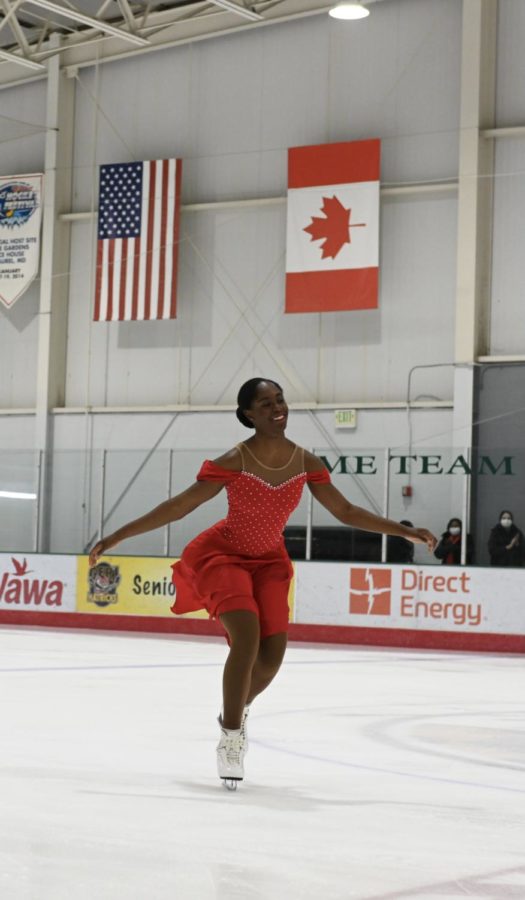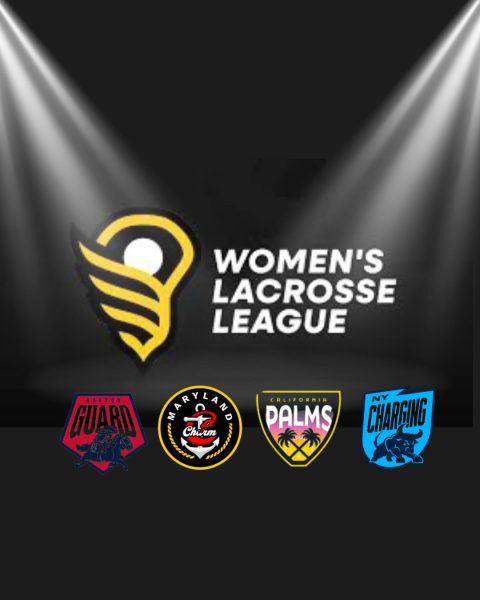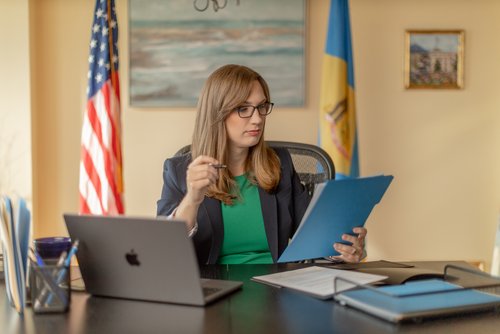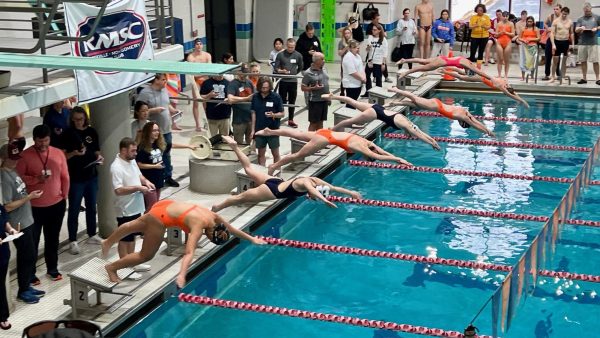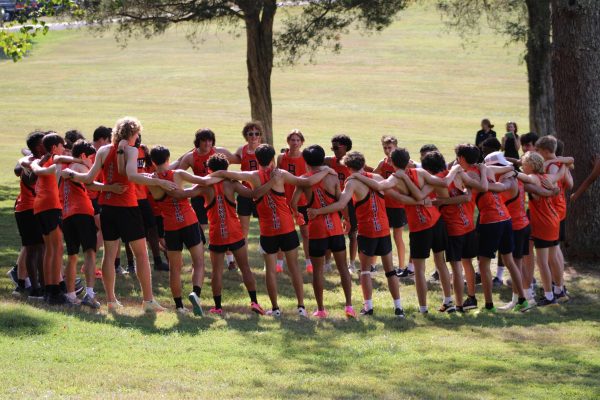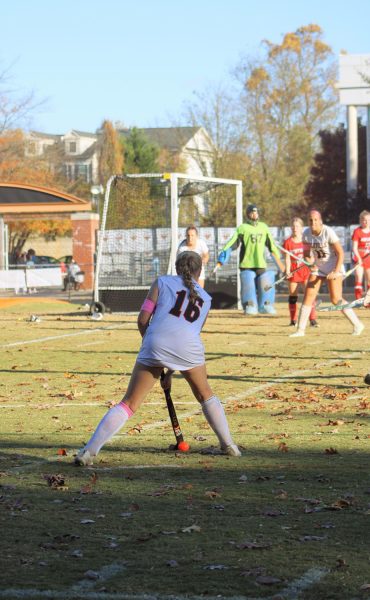Ram to Watch: Kikelomo Okunseinde
Photo courtesy of Kike Okunseinde
Kike Okunseinde performs a figure skating routine at Gardens Ice Arena. She performs for a local exhibition.
For most students, even the thought of International Baccalaureate (IB) level classes is daunting. But for senior Kikelomo “Kike” Okunseinde, IB classes only make up part of her responsibilities, on top of being a nationally recognized synchronized figure skater.
Okunseinde is a part of the DC EDGE Synchronized Skating Team, competing with a group of 16 members from the Washington DC region. She is also in the IB Diploma Programme, enrolled in Higher Level History, Math, English, and Biology.
“Group work at school is nice because everyone does their own part, but this is a place where if somebody doesn’t hold their weight it can affect the entire team,” Okunseinde said.
Okunseinde has been skating since she was 10 years old, originally introduced to the sport by a friend. Within the synchronized skating discipline, she is on the novice level, the highest of the intermediate levels before reaching international.
“[Synchro] has taught me a lot about discipline, punctuality, how to be on time,” Okunseinde said. “It’s taught me how to be a good team member and a supportive teammate.”
Within a season, Okunseinde and her team compete in four to five regional competitions. Regional competitions are held in the north-eastern U.S. states, recently having been in New York and Massachusetts.
“There are a lot of individual requirements that we have to accomplish to make sure that we’re up to par with our level,” she said. “Synchro has helped me overcome that fear of failing and pursuing regardless of how I do.”
In 2022, Okunseinde and her team qualified for the U.S. Synchronized Skating Championships in Colorado, an annual national skating competition. To qualify for a national spot, she competed against 34 other teams from around the country to represent her region. At the championships, she competed against 13 other teams from across the nation.
“[Synchro] is very freeing, it allows you to do something different,” Okunseinde said. “After a long day of school, even though practice can be tiring, it’s enjoyable to go meet my other friends at the rink and do something that we all do together.”
Okunseinde attends personal practice two to three times a week for one and a half to two and a half hours at a time. She also attends team practice for three and a half to four and a half hours twice a week.
“My teammates and I share a lot of things together,” she said. “We all go through the same experiences, it’s a team effort, so regardless of how we play or how practice goes we all have that sense of understanding.”
Faced with the workload of IB classes on top of competitive skating, Okunseinde always keeps her graded work organized to stay on top of assignments.
“Prioritizing is the most important- if there’s a grade that’s bigger, that’s due sooner, is worth more, I’ll do that first,” she said. “Whether it’s an all task or practice prep, you still got to get it done.”
Moving forward, Okunseinde hopes to continue skating, even if not on the national competition level. She admires the organization skills and punctuality synchronized skating has taught her, and hopes to apply that to her future.
“If there is an opportunity to do competitive skating in the future I might do it,” Okunseinde said. “I might continue in college, it’s still up in the air, but I do hope to continue doing it for recreation at the least.”


